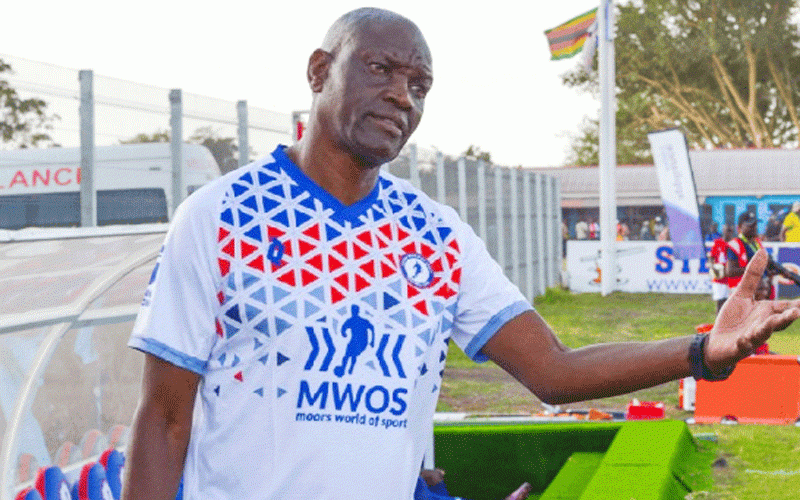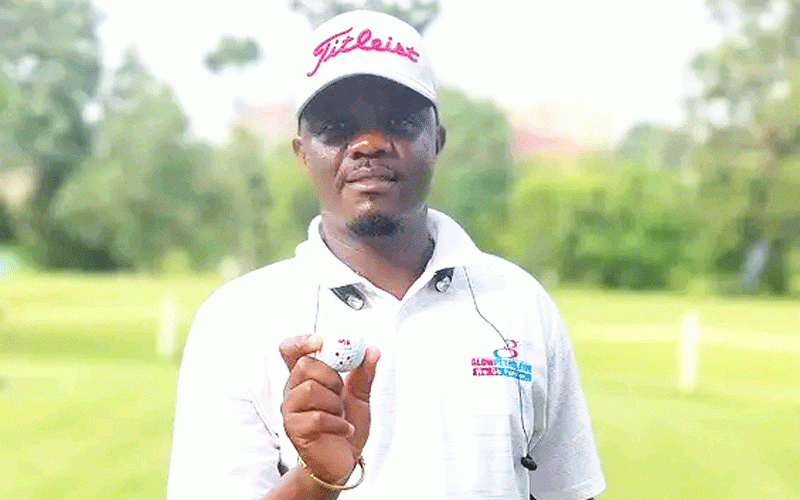
Running around bare-foot, shirtless, wearing an adidas short and kicking around plastic balls, Kamuriwo’s dream was to see soccer taking him out of the poverty that surrounded him to the glowing lights of Harare.
In pursuance of that dream, the former Nemakonde High School student joined the now defunct Mhangura FC as a 19-year-old in 1993.
“I was playing for LSM in the first Division and then Mhangura chairman Obert Dube lured me to the club. My first game was against Eiffel Flats,” he said.
That was the moment Kamuriwo’s journey to stardom began and between 1993 and 1999, he was the toast of the mining community of Mhangura.
“It is at Mhangura FC that I got the nickname Guava. We were at a training session and I was still a new guy and someone called my name.
“Then coach, Philemon Phiri, of Malawian origin, did not hear correctly so he asked, ‘Guava ndindandi?’ Everyone laughed and since then the name stuck,” Kamuriwo said with a chuckle.
“There were some brilliant players at Mhangura; Webster and Billy Chikabala, Gerald Phiri and Jani Milanzi were some of them. We managed to reach the finals of the BP Cup twice in 1995 and 1998.
- Chamisa under fire over US$120K donation
- Mavhunga puts DeMbare into Chibuku quarterfinals
- Pension funds bet on Cabora Bassa oilfields
- Councils defy govt fire tender directive
Keep Reading
“In 1995 we lost 4-1 to Dynamos but I strongly feel that we were unfairly treated by the then Premier Soccer League executive which ordered us to play all our matches in Harare in 1998 against CAPS United. I played very well in that tournament and was voted the best player,” he said.His exploits caught the eye of Steve “The Dude” Kwashi the Jets coach who lured him to the club thereby partly achieving his dream of playing in the city and closer to Dynamos.
“It was in 1999 when I joined Jets, but unfortunately the club was already facing financial problems as they had lost their sponsor. Things were so tight that we had to survive on the goodwill of well-wishers,” he said.
The problems at Jets led him to join army side Black Rhinos, which proved a wise move as it gave him a career in the army.
“Looking back, I did not see that I was already investing in the future. I only joined Rhinos because we were desperate that time.
“However, I could not play for the club because of an ownership wrangle that arose between Hackney which had taken over Mhangura and Jets. Rhinos had already given me a job in the army,” he said.
Confusion rocked Kamuriwo’s DeMbare move
In the midst of this confusion, Kamuriwo’s dream of donning the famous Dynamos jersey came to fruition, though briefly.
“I could not believe it in 2000 when I first received a call from then Dynamos treasurer Godfrey Japa Japa to join Dynamos. Even the fact that I had signed for Black Rhinos did not deter me from joining Dynamos.
“I played just three games for the club and I can tell you that those were the happiest days of my soccer career. At Dynamos back then one never went broke”.
Gift’s DeMbare teammates
Among his teammates were Memory Mucherahowa, Makwinji Soma-Phiri and Lovemore Ncube. His romance with the popular Harare side ended when Kamuriwo, an army employee, was threatened with arrest by the military police.
“I was advised that the move to Dynamos was wrong. Thus together with William Chari, we went back to Black Rhinos,” he said.
Although, Kamuriwo’s dream of turning out for Dynamos went up in smoke, Chari later played for the club after negotiations.
“I was disappointed, but there was nothing I could do. If I had played for Dynamos for a longer period, maybe I could have achieved a lot,” he said.But returning to Rhinos was not all doom and gloom as he banged 16 goals to help his club to a second position finish in 2002.
“In 2002 I was voted the first runner up for the Soccer Stars of the Year and was the league’s top goal scorer with 16 goals. We had good wingbacks in Rowan Nenzou and Douglas Ndalama who would help with their overlapping runs,” he said.
Kamuriwo was then called to the national team in 2003 and also played in the Confederation Cup in which they lost to Morocco’s Raja Casablanca. However, an ankle injury sustained in 2004 meant that he had to quit playing football in 2006 having captained the club since 2001.
“I am now coaching army team Seven Flames which is in the second division,” said 38-year-old Kamuriwo who has risen to the position of Staff Sergeant in the army’s artillery division.











